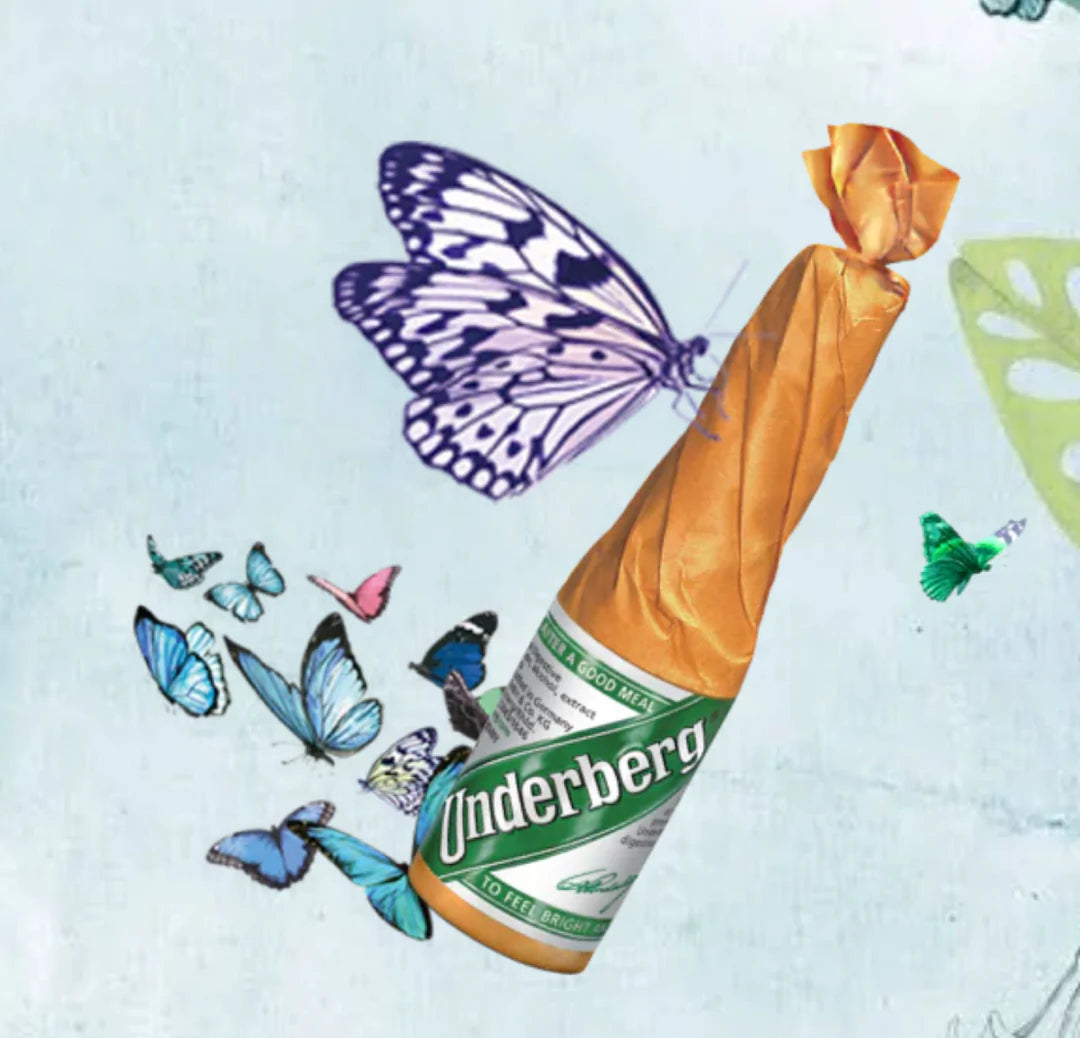

· By BittersBerg Admin
BREAKING DOWN UNDERBERG: WHAT'S IN A BITTER?
On June 17, 1846 Hubert Underberg did two things at the Rheinberg, Germany Town Hall: he married Karharina Albrecht and he established the Underberg-Albrecht Company.
Hubert then set out on a quest to create a drink which would be true to the motto: "Semper idem," or, "Always the same," when it comes to lasting effect and quality. After tinkering with the recipe for years, Underberg finally settled on a distinctive combination of aromatic herbs sourced from 43 countries.
175 years later, this little bottle has become the world's bitter of choice. But, what exactly is behind its magical recipe? Even though only a small group of family members know what is inside this amber elixir, we can safely say that its natural herbal bitters make this digestive the perfect concoction to soothe your overstuffed stomach after a big meal.
So, what exactly are bitters?
Bitters are alcohol-based extracts of the leaves, flowers, bark, or roots of bitter plants. Many of these plants have been used as medical remedies since ancient times.
Bitters are traditionally and most commonly made with alcohol to extract as much as possible from the bittering agents, while also preserving their shelf life. The alcohol used to make bitters is typically between 40-50 percent ABV, yet the amount of alcohol in a single serving is very minimal.
Bitters are very potent, and often a few drops will do. A 20ml bottle of Underberg contains herbs from 43 countries distilled using a proprietary process that ensures the gentle extraction of the active and aromatic substances from the herbs, packed inside the perfect size bottle to foster well-being.
The history of bitters
Bitters actually have a long history as a natural remedy and have been used around the world as a digestive aid for centuries.
As humans organized early medical systems, we see mention of bitters in almost every culture, from Ayurveda and Chinese medicine, to the original bitter liquids of the Mediterranean (the first record of these is over 2,000 years old). Traces of bitters have been found in ancient Egyptian wine jars, leading historians to believe that it was common practice of the Egyptians’ to infuse their wine with medicinal herbs.
This apothecary staple was first marketed in the 1700s as a remedy for digestion irregularities. Throughout the next few centuries, bitters would be used for everything, from a stimulant for the troops in the 1800s to a proposed treatment for malaria. By the 19th Century, a mixture of spirit, sugar, water, and bitters became the popular social drink of choice in America.
The multiple benefits in bitters:
If you are considering a holistic approach to stimulating your digestion, bitters might be the natural digestive solution that you are looking for. Some of its popular benefits are:
Help with your digestion: This is the first, and most famous benefit of bitters. Bitter engages and excites the digestive system. Sip a small amount after a meal for occasional heartburn and indigestion; for gas and bloating, take a sip before you eat.
Supports your liver: Bitters help support the liver at removing toxins from the body and regulating our metabolic processes.
Maximize nutrient absorption: Bitters help boost the synthesis of digestive enzymes in the body, and maximizes the absorption of several key vitamins and minerals that are essential to health - such as calcium.
Boost your microbiome: Bitters are high in prebiotics that provide energy for the beneficial bacteria in your gut. Getting in your daily dose of bitter foods can ensure you supply your healthy gut bacteria with the fuel that it needs to thrive.
Promote overall healthy eating habits: Consuming bitter foods stimulates the production of PYY and GLP-1 hormones, which help control and suppress the appetite making us feel full and satisfied without overeating.
GENTIAN ROOT: ONE OF THE 43 PLANT EXTRACTS IN UNDERBERG
Of the 43 plant extracts found in the Underberg recipe, gentian root is one of the few known to the public.
Typically grown in the mountains of central and southern Europe, Asia, and the Americas, the Gentiana plant is known as the “king of bitter herbs” and has been used actively around the globe as a medicinal plant, specifically as an herbal bittering agent to fight inflammation and swelling, treat infected wounds and gastrointestinal complaints.
Gentian Root is often found in herbal extracts, teas, and bitter flavoring agents.
UNDERBERG: THE WORLD’S BITTER OF CHOICE
Served after a large meal, Underberg's 175-year-old recipe engages our digestion to do more work and to do the work it should be doing, providing comfort and relief. Sip Strong after a big meal and feel like yourself again!
